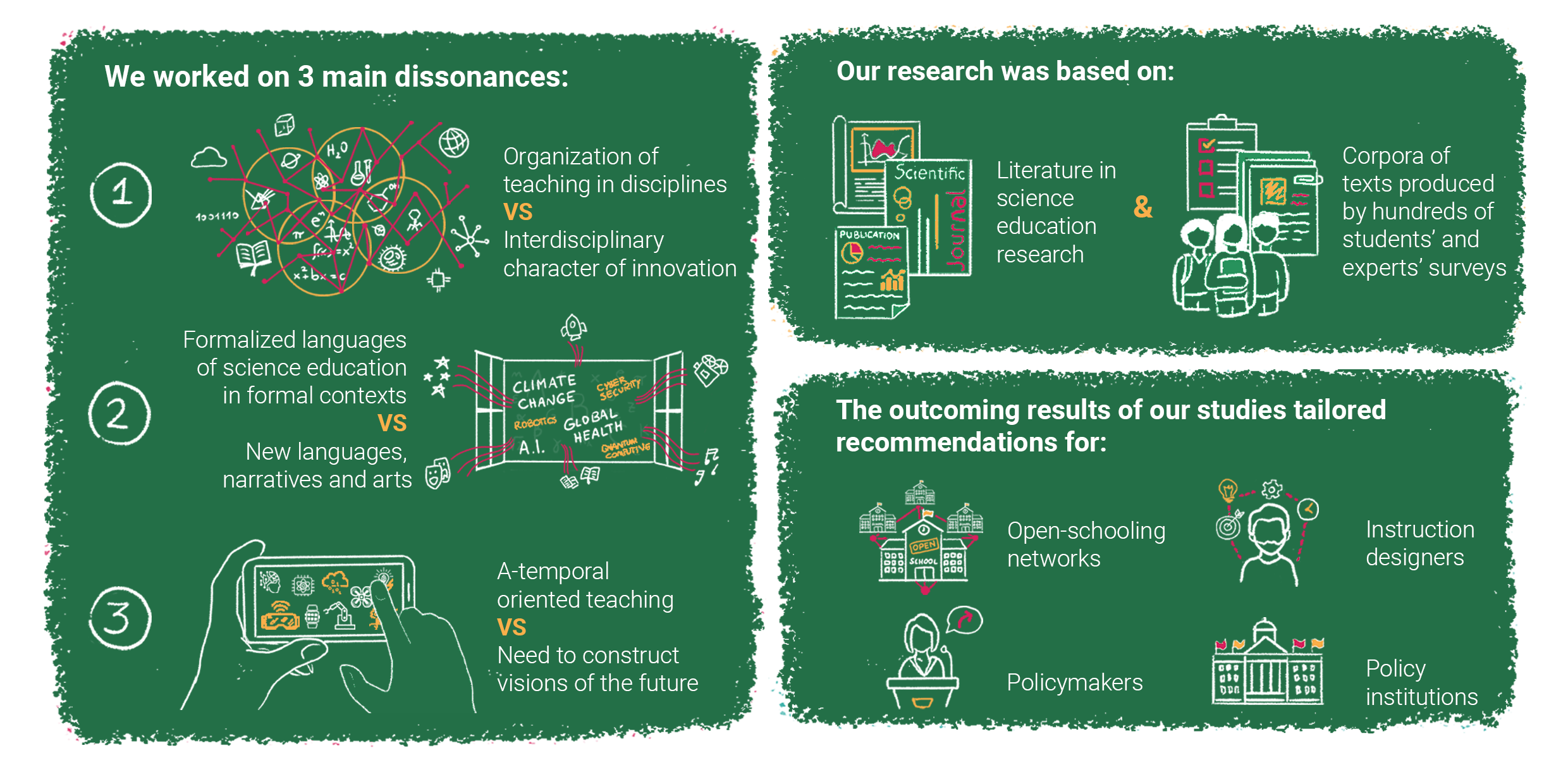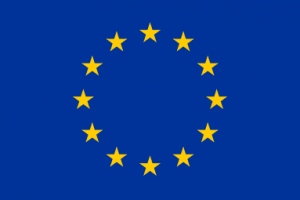But what does "future-oriented" means?
We recognized that we can't keep navigating a fast-paced, changing present time with the old maps that accompany us as a society. Therefore, we needed to give imagination the right place in how we envision our systems, territories and ways of doing. Imagination has be the driving force that lead FEDORA's paths and proposed methods into new ways of understanding and practising science education. We wanted to creatively regenerate the science learning ecosystem and intensify those approaches that would lead to open, collaborative, imaginative and curious ways of thinking and doing.

They are true dissonances that can be brought into a nicer piece! We saw a first mismatch between, on one hand, the vertical and hyper- specialized organization of teaching in disciplines and, on the other, the inter-multi-transdisciplinary character of innovation and the efforts to make research and science an open and collaborative space. We see a second mismatch between the formalized and exclusive languages used in schools and the needs for new languages to enhance imagination and the capacity to talk about the contemporary challenges and last, but not least, we identify a third mismach in the discrepancy between the a-temporal or historically oriented teaching approaches and the need to support the young to construct visions of the future that empower actions in the present.
Work Package 1: Aligning science teaching/learning in formal contexts with the modus operandi of R&I - Analysis of blind spot 1, led by Kaunas University of Technology, LT
Work Package 2: Exploring new languages, narratives and arts in science education - Analysis of blind spot 2, led by Formicablu, IT
Work Package 3: Futurizing science education - Analysis of blind spot 3, led by the University of Helsinki, FI
Work Package 4:Toward a model for science education for the society of acceleration and uncertainty, led by the University of Bologna, IT
Work Package 5: Recommendations for proactive and anticipatory policymaking, led by the University of Oxford, UK
Work Package 6: Behind the scenes: communicating and disseminating FEDORA in its making, led by Formicablu, IT
Work Package 7: Project coordination and management, led by the University of Bologna, IT
Go to the Work Packages description page
